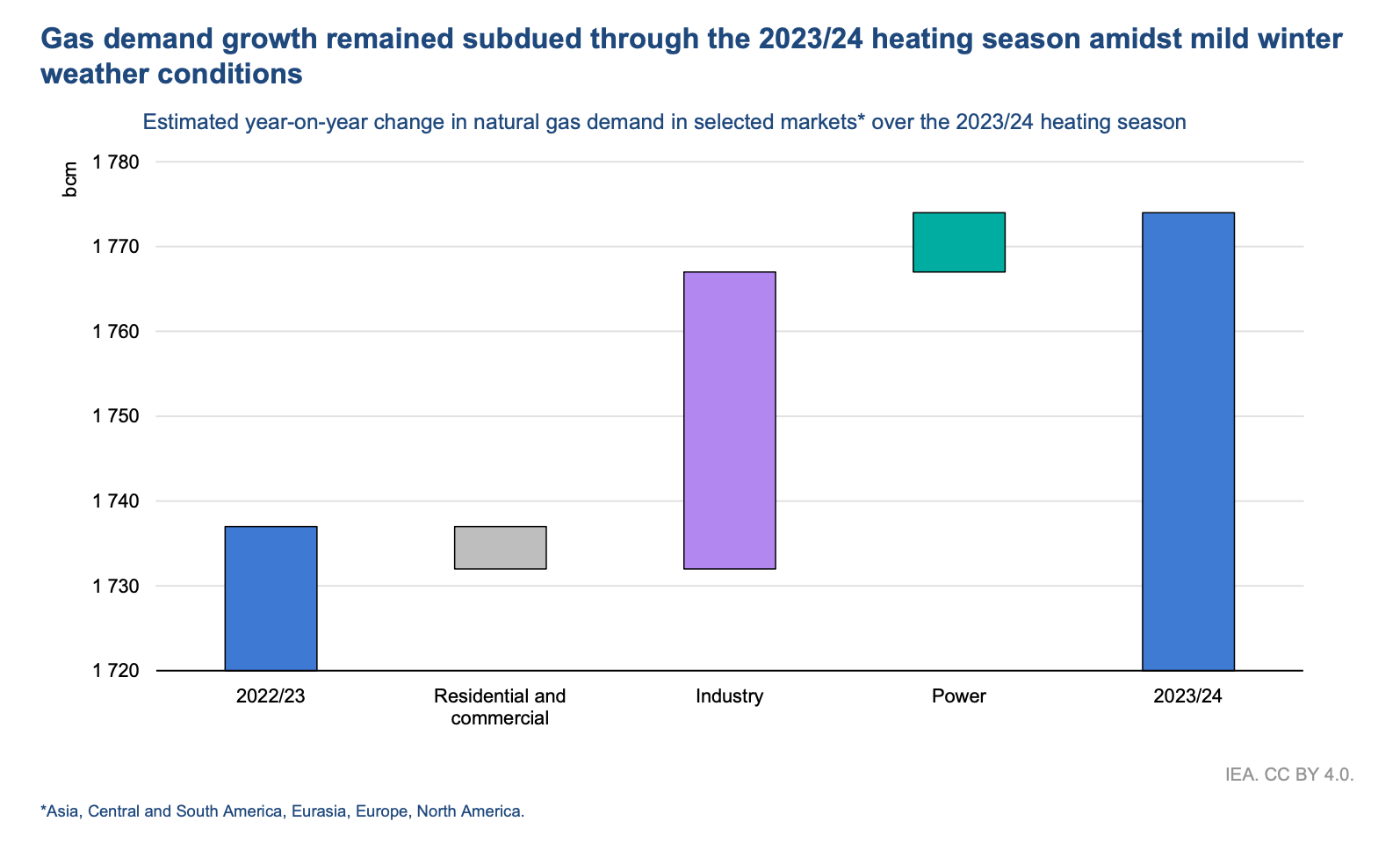IEA Forecasts 2.3% Growth in Global Gas Demand, Driven by Asian Markets
Sign up for Global Macro Playbook: Stay ahead of the curve on global macro trends.
Following a period of relative stability in natural gas markets during the mild 2023/24 winter, the International Energy Agency (IEA) predicts a 2.3% increase in global gas demand for 2024. This growth will be primarily driven by the expanding economies of Asia, with industrial and residential/commercial sectors leading the demand surge.

Despite a mild winter overall, the 2023/24 heating season experienced several cold spells that resulted in record-breaking demand spikes across key Northern Hemisphere markets. These events underscored the critical role of flexible gas supply in ensuring energy security, particularly in regions increasingly reliant on weather-dependent renewable energy sources.
"These events highlight the critical importance of gas supply flexibility for energy security, including in markets which are increasingly reliant on weather-sensitive renewable power generation, while using gas-fired power plants as a back-up option," the IEA report states.
The IEA notes that high storage levels at the end of the heating season, particularly in Europe, could contribute to further easing of market fundamentals over the summer months. This, coupled with limited growth in global LNG supply, may cap demand growth in key Asian and European markets.
However, the IEA acknowledges significant uncertainties surrounding the forecast, including potential delays in new liquefaction projects, geopolitical tensions, and ongoing challenges with existing infrastructure. These factors could pose downside risks to the projected demand growth.
While gas-to-power demand is expected to see only marginal increases globally, regional variations are anticipated. Increased gas burn in the Asia-Pacific region, North America, and the Middle East will likely be offset by continued reductions in Europe. However, lower hydro availability in certain regions could lead to higher reliance on gas-fired power plants.